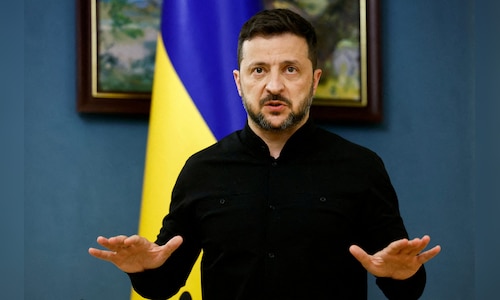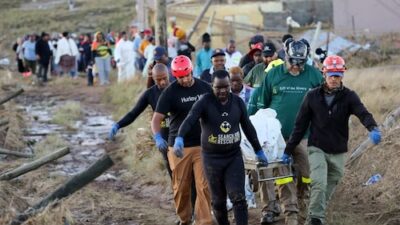Addressing journalists in Kyiv, Zelenskyy remarked that the spike in oil prices poses a threat to Ukraine’s position on the battlefield, particularly as Western allies have failed to impose effective price caps on Russian oil exports.
“The attacks resulted in a notable rise in oil prices, which is detrimental for us,” Zelenskyy noted. “Russia is gaining strength from increased revenue from oil exports.”
Global oil prices climbed as much as 7% after Israel and Iran engaged in reciprocal attacks in the past 48 hours, sparking fears that further escalations could disrupt oil exports from the Middle East.
Also Read: Iran vows to continue strikes against Israel, US bases, military officials state
Zelenskyy mentioned that he intends to bring up this issue in an upcoming conversation with US President Donald Trump.
“I will be in touch with the American side soon, likely with the president, and we will address this matter,” he said.
Zelenskyy also raised concerns that US military aid could be diverted from Ukraine to support Israel amid renewed tensions in the Middle East.
“We hope aid to Ukraine will not diminish because of this,” he stated. “Previously, this had delayed aid to Ukraine.”
The needs of Ukraine’s military have been overlooked by the United States in favor of aiding Israel, Zelenskyy mentioned, pointing to a shipment of 20,000 interceptor missiles, meant for countering Iran-made Shahed drones, that were redirected to Israel.
“This was a setback for us,” he said. “Facing 300 to 400 drones daily, while many are shot down or veer off course, some inevitably breach our defenses. We were relying on those missiles.”
Also Read: Israel-Iran war: Leaders’ responses to escalating West Asia tensions
An air defense system, Barak-8, that was promised to Ukraine by Israeli President Benjamin Netanyahu was sent to the US for repairs but never reached Ukraine, Zelenskyy stated.
The Ukrainian president acknowledged that momentum for the Coalition of the Willing, a group of 31 nations committed to bolstering support for Ukraine against Russian aggression, has diminished due to US hesitance in providing backing.
“This situation has illustrated that Europe has not firmly decided to stand with Ukraine if America is absent,” he said.
The offer of a foreign troop “reassurance force” from the Coalition of the Willing remains available “but they require a backstop, as it’s termed, from America,” Zelenskyy explained. “This implies that if an urgent situation arises, America will stand with them and with Ukraine.”
The Ukrainian president elaborated that the presence of foreign troops in Ukraine would serve as a security guarantee, allowing Kyiv to consider territorial compromises, marking the first time he has linked the reassurance force with concessions Kyiv is considering in negotiations with Russia.
“Simply put, their presence enables us to compromise, acknowledging that currently our state lacks the capacity to reclaim territories within the 1991 borders,” he stated.
However, Europe and Ukraine continue to await strong signals from Trump.
Without stringent US sanctions against Russia, “I must admit, it will be very challenging for us,” Zelenskyy mentioned, adding that the burden would then fall on Europe to increase military support for Ukraine.
In other news, Russia repatriated more bodies of fallen soldiers following an agreement reached during peace talks in Istanbul between Russian and Ukrainian negotiators, as reported by Russian officials on Saturday, as cited by Russian state media. Officials noted that Ukraine did not return any bodies to Russia that day.
Ukraine’s Coordination Headquarters for the Treatment of Prisoners of War confirmed in a statement that Russia returned 1,200 bodies.
The first phase of the staggered exchanges occurred on Monday. The agreement to exchange prisoners of war and the bodies of deceased soldiers was the only tangible result from the talks in Istanbul on June 2.
Continuing a renewed offensive along the eastern and northeastern segments of the more than 1,000-kilometer (over 600-mile) front line, the Russian Defense Ministry announced on Saturday that its forces captured another village in the Donetsk region, Zelenyi Kut. The Ukrainian military has not provided an immediate response to the Russian claim.
According to the Ukrainian air force, Russia launched 58 drones and decoys toward Ukraine overnight, with air defenses destroying 23 drones and jamming another 20.
Russia’s defense ministry claimed to have shot down 66 Ukrainian drones overnight.
Attacks have persisted despite ongoing discussions regarding a potential ceasefire in the conflict. During the June 2 talks in Istanbul, Russian and Ukrainian negotiators exchanged memorandums reflecting sharply differing conditions that both sides consider unacceptable, making a swift agreement unlikely.



